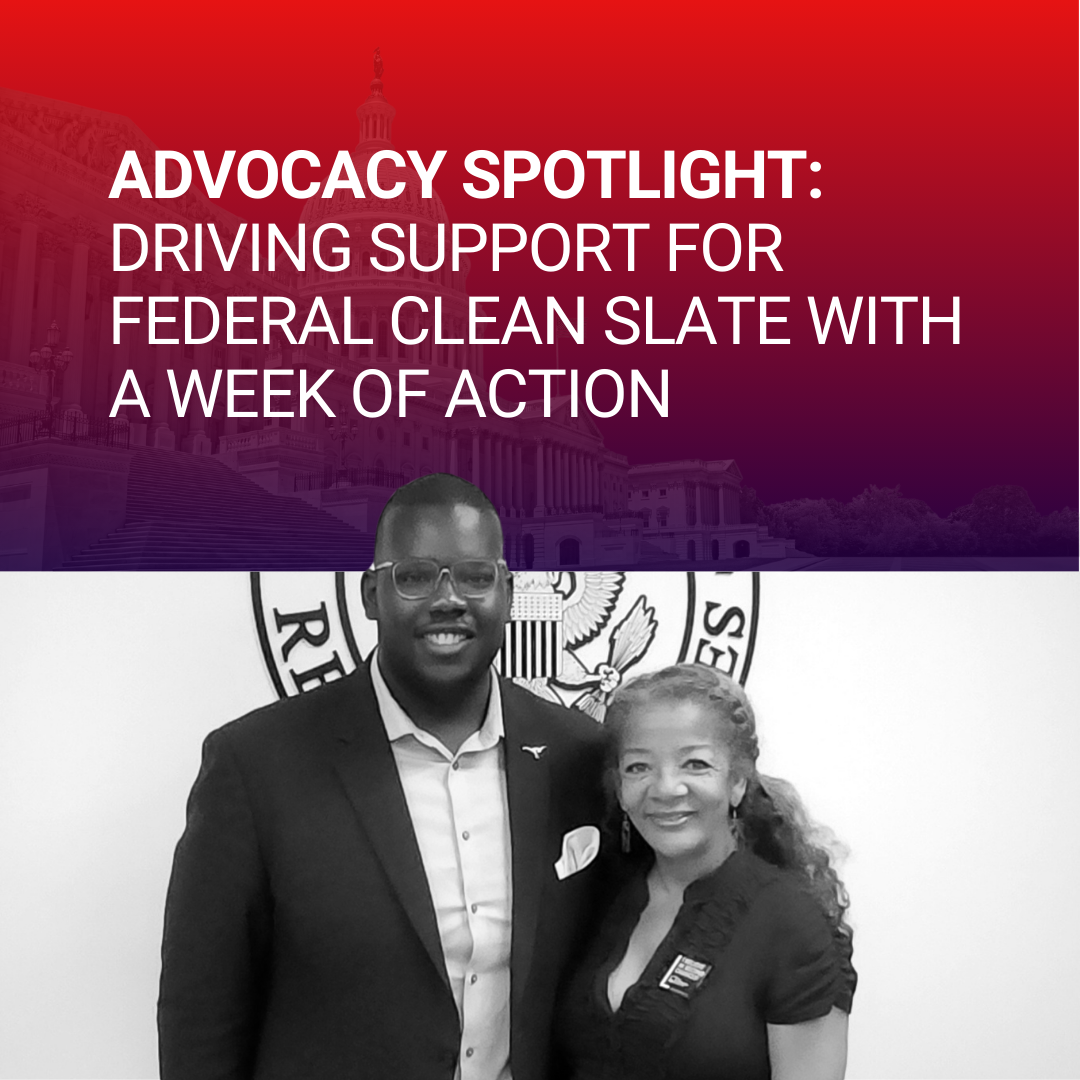It's Time for a
Federal Clean Slate
States have paved the way on second chances. Now it's time for Congress to do its part.

The Problem
States have led the way in passing Clean Slate automation policies, putting over 18 million people on the path to having a fully or partially sealed record across 13 states, and Washington D.C., that have passed legislation meeting The Clean Slate Initiative’s policy minimums.
Currently, however, there is no standard process for sealing federal records. There are very limited avenues for someone to seal a federal record, like when an arrest or conviction was found to be invalid or a clerical error was made, but those opportunities are comparatively rare.
The federal government does have a pardon process in place, which is different from having a record sealed, because the pardon simply "forgives" the crime - it does not seal a person's record. Therefore, even for those who are able to receive a federal pardon, their record can still be a barrier, blocking access to housing, employment, education, and more.

The Solution
The solution to this federal second chance challenge is simple: Clean Slate. Codifying Federal Clean Slate policies would create the first-ever standard sealing process for federal records, expand access to second chances through automation, and help fiscally support state efforts to implement Clean Slate policies.

Once people complete their sentence and remain crime-free for a period of time, they deserve the opportunity to live a life that is not restrained by the barriers of their record. By passing federal Clean Slate legislation, Congress can ensure people in America have a fair shot at living productive and fulfilling lives.
Bipartisan support for second chances, in the states and in the 119th Congress, demonstrates a broad agreement that a past mistake should not be a life sentence to poverty. States have led the way on second chances, and now it’s time for Congress to do its part.


Federal Clean Slate Legislation
The Clean Slate Act
Senate Bill: S. 1580 | Sponsors: Sens. Lisa Blunt Rochester (D-DE) & Rand Paul (R-KY)
House Bill: H.R. 3114 | Sponsors: Reps. Lucy McBath (D-GA-6) & Nathan Moran (R-TX-1)
The Clean Slate Act is Federal Legislation That Would:
- Automate sealing federal non-violent offenses involving simple possession or any federal marijuana offenses after people meet the requirements.
- Create a new procedure that allows individuals to petition the United States Courts to seal records for nonviolent offenses that are not automatically sealed.
- Require, within 180 days, automated sealing of arrest records and other related records for individuals that have been acquitted, exonerated, or never had charges filed against them.
- Require individuals to wait two years to re-petition the court if their initial request was denied.
- Authorize district courts to appoint a public defender to help indigent petitioners file and successfully seal their records.
- Protect employers from liability for any claim arising out of the misconduct of an employee if the misconduct relates to a sealed record.
The Clean Slate Act Does Not:
- Allow sex offenders to seal their records.
- Allow those convicted of terrorism, treason, or other national security-related offenses to seal their records.
- Allow for the sealing of records if a petitioner has been convicted of other violent crimes.
The Fresh Start Act
Senate Bill: S. 3049 | Sponsors: Sens. Chris Van Hollen (D-MD) & Lisa Blunt Rochester (D-DE)
House Bill: H.R. 3111 | Sponsors: Reps. Laurel Lee (R-FL-15) & Sydney Kamlager-Dove (D-CA-37)
The Fresh Start Act is Federal Legislation That Would:
- Allow states that have record-sealing or expungement laws in place to apply for a federal grant to help improve their automated record infrastructure.
- Authorize the National Criminal History Improvement Program (NCHIP) to provide grants to states to automate their criminal records programs.
- Make clear that courts and law enforcement must retain access to cleared records.
- Prohibit states that delay record expungement or sealing due to fines or fees from receiving grant funding.
- Require states to report the number of records that have been sealed or expunged, broken down according to race, ethnicity, and gender.
Take Action
Support the Clean Slate Act and the Fresh Start Act!
Send a message to your Members of Congress urging them to support the bipartisan Clean Slate Act of 2025 and the Fresh Start Act, which would open grant opportunities for states with Clean Slate laws.
Federal Campaign Updates

Advocacy Spotlight: Driving Support for Federal Clean Slate with a Week of Action
The Clean Slate Initiative's first-ever Clean Slate Week of Action elevated our federal priorities and demonstrated the profound power of federal Clean Slate support. Learn more in this update from Reginald Darby, Federal Legislative Director.

Second Chances on the National Stage: Clean Slate Act and Fresh Start Act Reintroduced in Congress
At a powerful press conference in Washington, D.C. on April 30, bipartisan lawmakers, advocates, stakeholders, and directly impacted individuals celebrated the reintroduction of the Clean Slate Act and Fresh Start Act. Learn more in this update from Reginald Darby, Federal Legislative Director.

Clean Slate, Food Insecurity, and Public Health on the Alliance to End Hunger Podcast
Access to nutritious food is a fundamental public health issue, but for millions of people in America with past arrest and conviction records, this basic necessity is hard to reach. CSI joined the Alliance to End Hunger's podcast to talk about the intersection of Clean Slate, food insecurity, and public health. Learn more in this update from Reginald Darby, Federal Legislative Director.


Support Clean Slate
Your voice and action matter. Share your story to amplify the importance of second chances, or make a donation to help expand access to automated record sealing and opportunity for millions.
.avif)